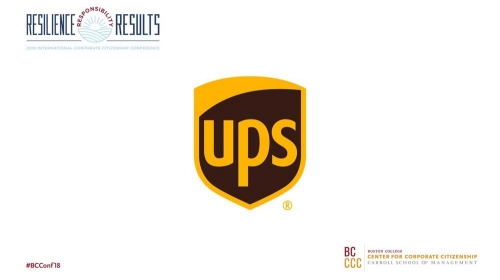Corporate citizenship is one of the most dynamic and exciting fields in business today – the urgency of global issues, the evolving expectations of stakeholders, and the improvements in our ability to track and communicate environmental, social, and governance (ESG) activity are trends that have created a vibrant, challenging, and ever-changing business ecosystem.
In response to this complex environment, companies have called on organizations like the Global Reporting Initiative (GRI) to create a uniform and structured way to report credibly on the ESG issues that matter to their company and its stakeholders. GRI has responded.
On October 19, GRI issued their updated Sustainability Reporting Standards after nearly a year spent collecting comments, suggestions, and feedback from a variety of stakeholders.

Moving from a reporting framework to a standard, the new GRI Standards include much of the same information as the G4 guidelines. The GRI Standards are organized now into a set of interrelated modules on specific dimensions of reporting. They strive to be more user-friendly, easier to update, and allow companies more flexibility in how they report on individual topics. As of the launch of the GRI Standards this month, a transition period of 3 years has begun, during which companies can continue to use the G4 guidelines, but also start to use the new GRI Standards. GRI will fully transition to using the standards only in January of 2018.
To date, the GRI framework is utilized by approximately 74 percent of the largest 250 companies worldwide, with an additional 5,300 companies using the GRI G4 guidelines as the basis of their reporting.
Using the GRI Standards to develop a sustainability report can create value for the company and for society. A 2011 study found that by voluntarily reporting their superior ESG performance, companies can lower their cost of capital.[i] A 2012 study found that the disclosure of corporate citizenship information leads to more accurate analyst forecasts, while a 2015 study found that available corporate citizenship information is positively associated with positive analyst assessments.[ii],[iii] The Center’s own surveys of the field have shown us that these benefits are understood by business leaders. According to the most recent State of Corporate Citizenship study, the majority of executives believe that resources for reporting on social and environmental performance will increase in the near future.
To learn more about the move to standards, how to continue reporting if you currently use the G4 framework, or how to get started with GRI reporting, members can check out a webinar on demand to hear Laura Espinach, manager of standards at GRI, provide detailed information on the new standards and answer your questions about the transition.
The Boston College Center for Corporate Citizenship is a certified GRI training partner and offers several courses per year to certify professionals to report using the GRI Standards.
[i] Dhaliwal, D. S., Li, O. Z., Tsang, A., & Yang, Y. G. (2011). Voluntary nonfinancial disclosure and the cost of equity capital: The initiation of corporate social responsibility reporting. The Accounting Review, 86 (1), 59-100.
[ii] Dhaliwal, D.S., Radhakrishnan, S., Tsang, A., & Yang, Y.G. (2012). Nonfinancial disclosure and analyst forecast accuracy: international evidence on corporate social responsibility disclosure. The Accounting Review, 87 (3), 723–759.
[iii] Luo, X., Raithel, S., Wang, H., & Zheng, Q. (2015). Corporate social performance, analyst stock recommendations, and firm future returns. Strategic Management Journal, 36 (1), 123-136.
Not a member? Learn more about how the Boston College Center for Corporate Citizenship can help you get the most from your programs by calling 617 552 4545 or emailing ccc@bc.edu.









